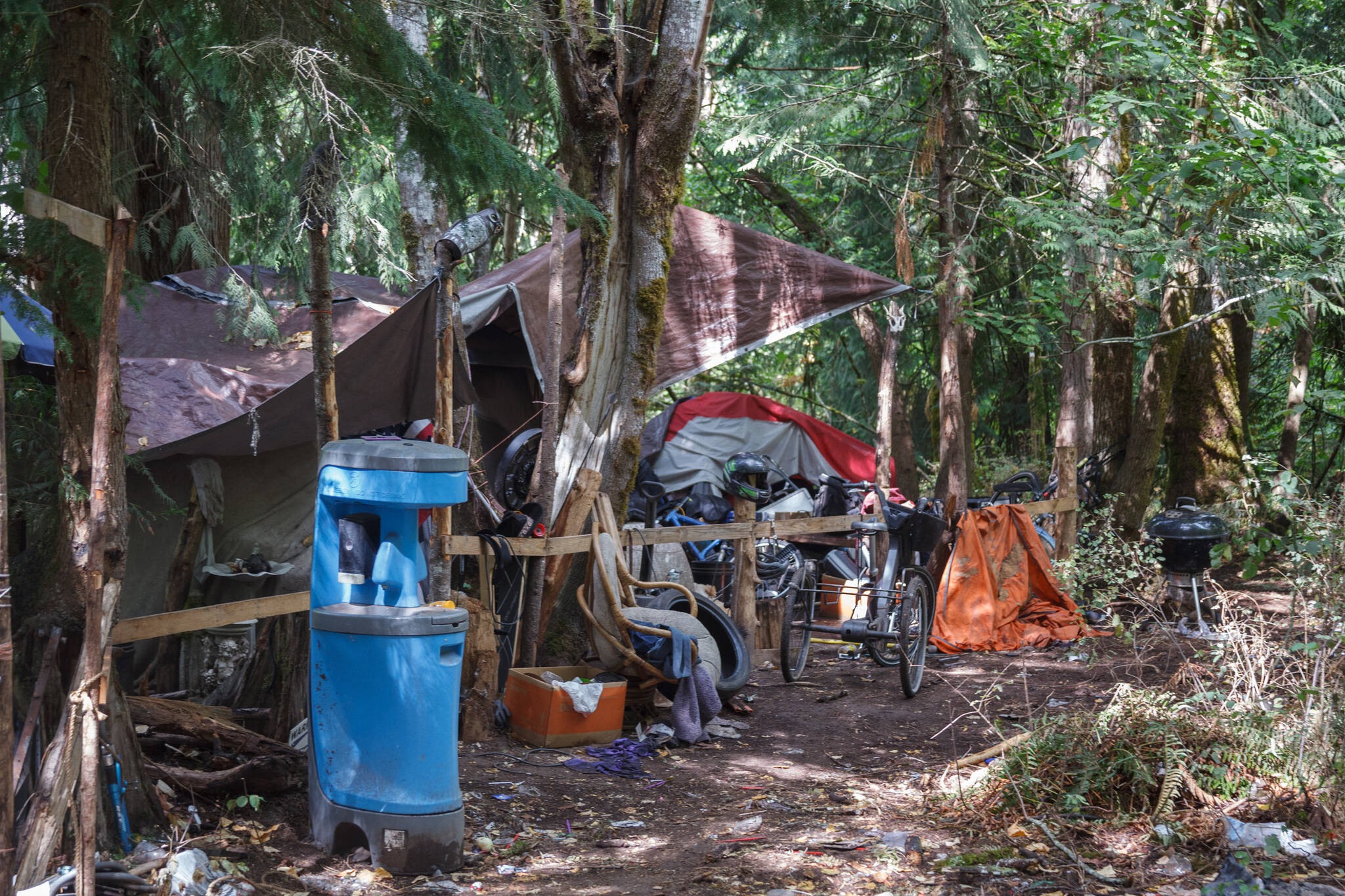At an Aug. 26 work session, Auburn City Councilmembers discussed amending existing city rules against houseless camping on city-owned property, to “better protect its parks and facilities” and “promote equitable access for all citizens.”
And on Sept. 16, the council passed the ordinance, which, among other things, removes certain sections from the city code.
For instance, the amendments removed the section that required city employees to first offer houseless campers overnight shelter, as is available on the date the violation occurred, before the city could take legal action against them.
Critically, the amendments also shift the rationale for the ordinance from “protecting public health and safety from homeless camping,” to “maintaining the intended use and integrity of the city’s public spaces,” ensuring they remain safe, clean and accessible for all residents, according to councilmembers.
“City-owned properties and facilities are designed and maintained to serve a specific purpose benefiting the community as a whole,” Councilmember Clinton Taylor said before the unanimous vote. “Parks, recreational areas and public buildings are intended for recreation, leisure, community events and civic engagement. Preserving these spaces for their intended use ensures they remain accessible, safe and enjoyable for our residents, and these amendments are intended to re-enforce those principles.”
“Ordinance 6950, I have to say it’s one where, if we had tried to tackle this a few years back, I would have been more conflicted,” said Councilmember Kate Baldwin. “But I think in recent years, we’ve seen so much work by the city and its anti-homelessness coordinator [Kent Hay] to work on putting together a reasonable ladder for getting people into shelter and into housing.”
“We have a number of options available to us,” Baldwin added, “from housing vouchers to Don’s Place, to our overnight shelters, that I think we’re really building the right continuum to get people out of tents and into better facilities. I would say, knowing that we have that available to us going forward, that we try to make that available to folks that are out, unsheltered. It’s with that context that we hear this tonight.”
Here’s what led up to Monday’s council action.
In 2018, the Ninth Circuit Court of Appeals ruled in Martin v. the City of Boise that anti-camping ordinances prohibiting camping on city properties barred cities from criminally prosecuting unhoused individuals when no alternate shelter was available on the date the camping activity occurred.
In 2021, the city of Auburn responded with an ordinance prohibiting camping on all city property, including parks and at all city-owned facilities. That law, as written above, required the city to offer houseless campers an alternate shelter first before taking legal action against them. The idea back then was not only to address homelessness, but also to align Auburn’s laws with the Ninth Circuit Court of Appeals’ ruling.
On June 29, 2024, the U.S. Supreme Court released its ruling in Grants Pass vs. Johnson that overturned the earlier Boise ruling, and with it laws like Auburn’s across the nation followed, giving cities more authority to enforce prohibitions against camping on city-owned property.
In its ruling, the high court found that the city of Grants Pass, Oregon, had not violated the Eighth Amendment prohibition against cruel and unusual punishment, as the plaintiff argued it did when it enforced camping bans against its unhoused residents. Writing for the majority, Supreme Court Justice Neil Gorsuch argued that the American people, “through their voluntary associations and charities, their elected representatives and appointed officials, their police officers and mental health professionals, know better than some judges the best way to address homelessness in their cities and towns.”
At its work session on Aug. 26, 2024, Auburn leaders discussed changing the 2021 ordinance, this time to ensure it aligned with the Supreme Court’s recent ruling that overturned the earlier Boise ruling.
Here is how the framers of the latest amendments summed up the ordinance:
“Unauthorized camping poses significant public health risks due to inadequate sanitation and can lead to environmental degradation, safety concerns, and a decline in the quality of life for the community,” adding it also found the amendments aligned with the city’s commitment to addressing homelessness “through targeted support services rather than permitting encampments in public spaces.”



